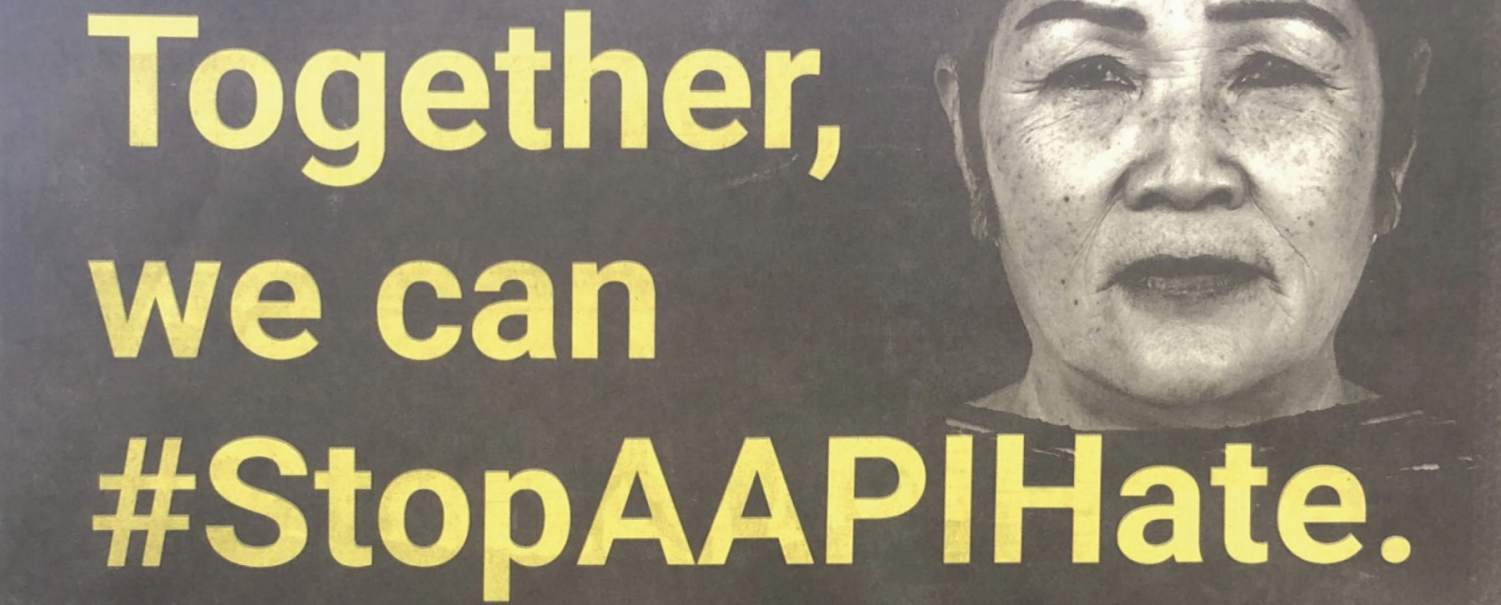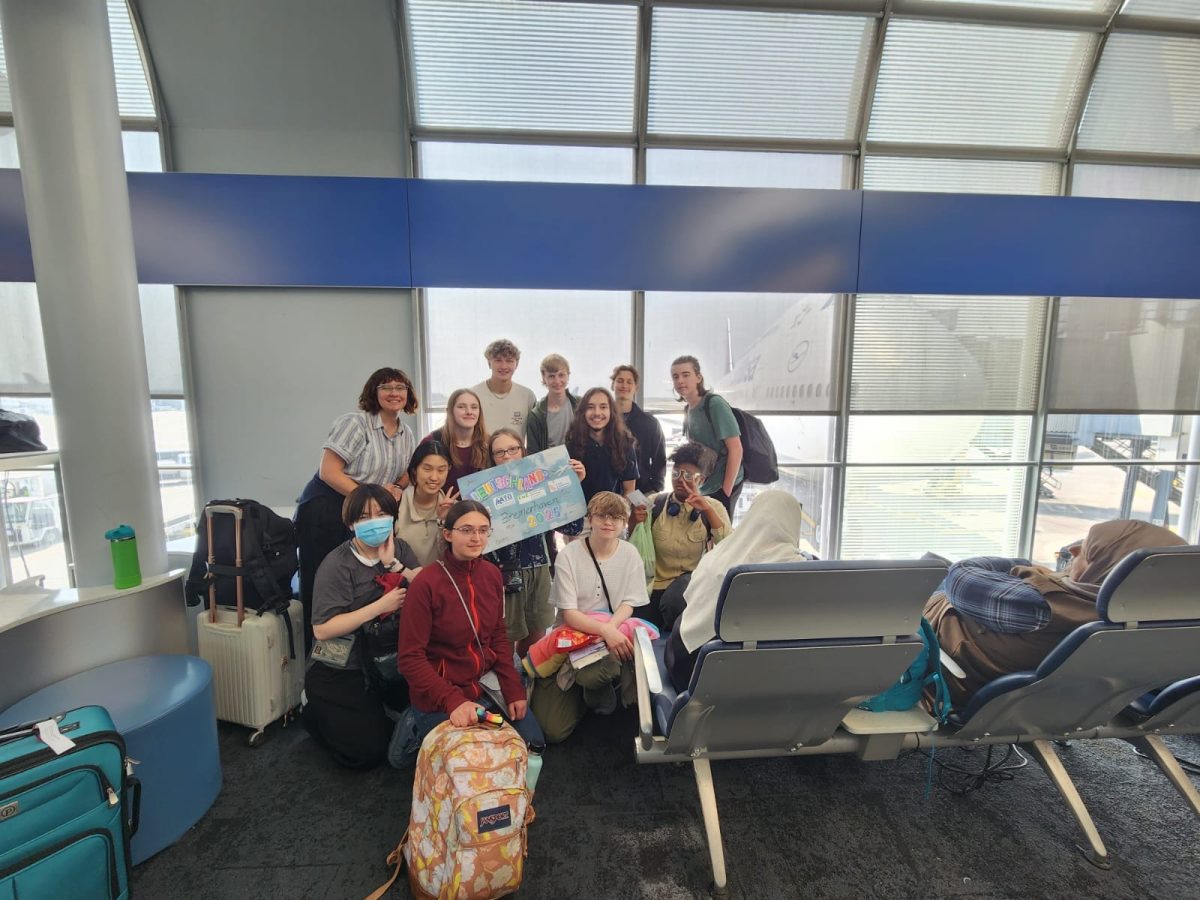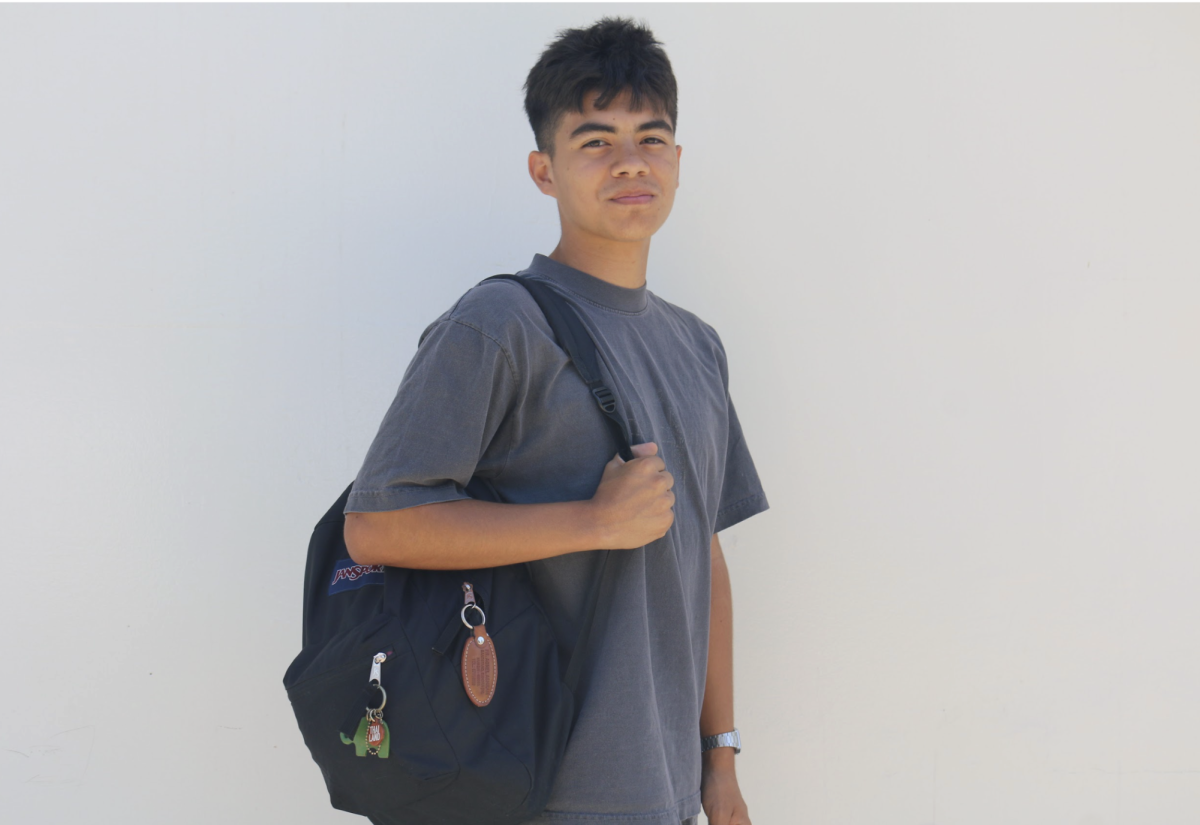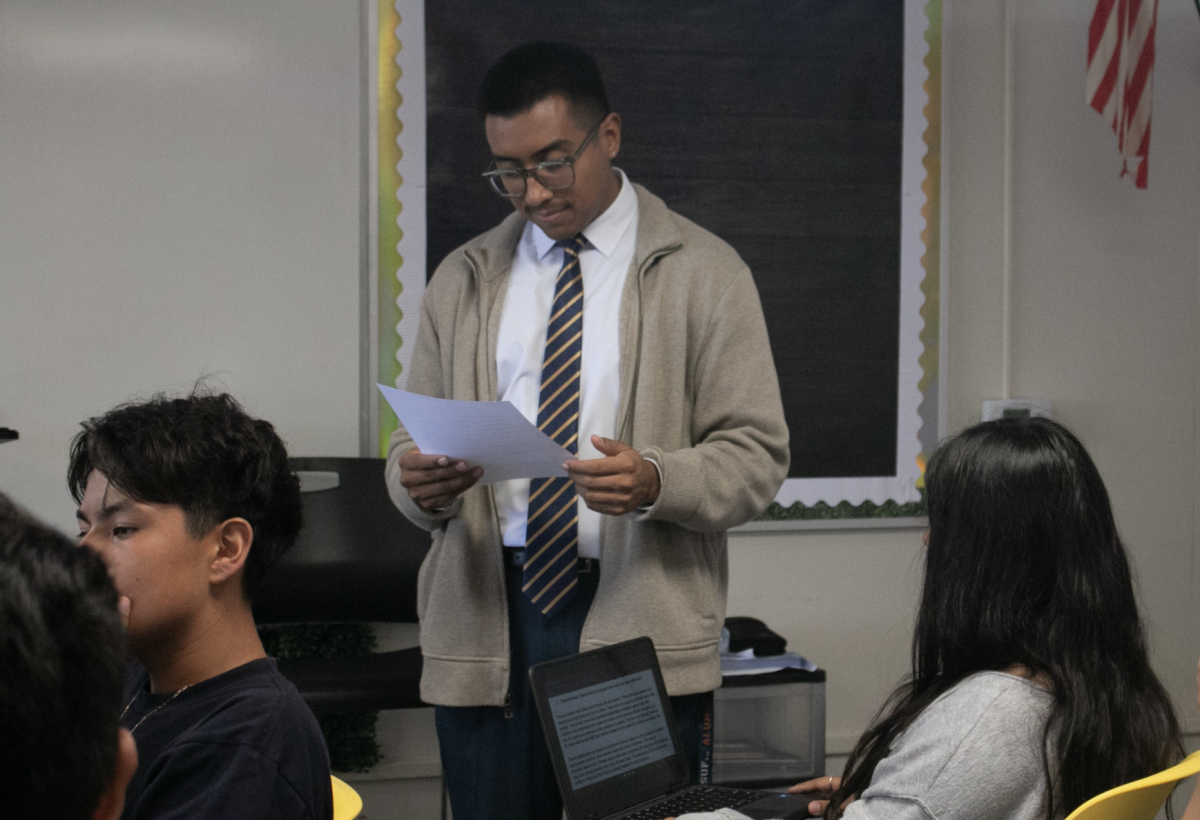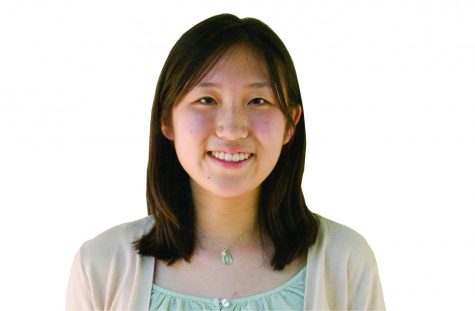It was a full-page ad that appeared on the March 21 issue of the Los Angeles Times.
Typed out in a white font that contrasts against the black backdrop, the notice called on readers to report any kind of anti-Asian hate incident to stopaapihate.org (Asian Americans and Pacific Islanders).
Including the hashtag “#StopAAPIHate” in bold, yellow lettering atop the page, the notice was shrouded with black-and-white headshots of two Asian women – one at the uppermost right corner and the other at the bottom right corner — and one Asian man in the center below the fold.
Directly beneath the hashtag appeared the context of the message: “We mourn and honor the eight lives lost to violence in the Atlanta-area. … They are us and we are them.”
While an ad that size can cost in the hundreds — if not thousands, it was the Times itself that actually offered to foot the bill for this as part of a public service announcement to its readers.
“We have seen a lot of media organizations [and] sometimes brands step up and say, ‘Hey, we have this billboard that you can use,’ or ‘Hey we have this ad space you can use,’ because they understand how important it is to get the message out, and I believe that was the case here [with the Times ad],” said Yamuna Hopwood, communications manager at Chinese for Affirmative Action [CAA].
CAA is among two other groups – the Asian Pacific Planning and Policy Control [A3PCON] and the Asian American Studies [AAS] Department of San Francisco State University – that teamed up to form Stop AAPI Hate last March during the beginning of the coronavirus pandemic.
It aims to address racism by tracking and responding to AAPI-directed discrimination, according to stopaapihate.org.
Though the Stop AAPI Hate organization has targeted the ad toward all age groups reading the newspaper, it aims to reach those who don’t frequent the news sites by finding them through social media. Hopwood said the organization, along with its Facebook, Twitter and Instagram handles, also has a youth campaign, which can be found on Instagram @stopaapihateyc, composed of college and high school students who advocate for putting ethnic studies curriculum into schools and work to educate youth on AAPI-related issues.
“We really count on them to share with us the voices and the perspectives of AAPI children and teenagers,” Hopwood said.
Besides advertising and youth campaigns, the Stop AAPI Hate movement has taken on steam as never before seen in recent history. After the March 24 shooting in Atlanta, President Joe Biden has weighed in on ensuring more legal protection for Asian Americans in the United States and more demonstrations have been held nationwide akin to the BLM protests last summer to remind Americans that Asians living in America are not to be blamed for the coronavirus pandemic.
At the moment, the movement has been strongest in Northern California since that’s where the Stop AAPI Hate group is located. Just a few weeks ago April 19, San Francisco’s Chinatown hosted a rally where protestors gathered at Chinatown and marched to Union Square to fight against Asian hate.
Sunny Hills Chinese Club secretary freshman Sophia Qin said she found out about the organization after clicking through Instagram stories of people she follows and browsing through the recommended posts on her Instagram. Despite her willingness to participate in demonstrations, Qin has yet to take her actions to the next level of joining any outdoor Stop Asian Hate marches.
“Sometimes I will repost the news about severe, tragic violence toward AAPI on Instagram. … I will certainly participate in marches or demonstrations after the pandemic to alert society and fight to maintain my rights or security,” Qin said.
Others like Vietnamese American sophomore Dylan Tran remain oblivious to this cause.
“I’ve been concerned with other things in my life, [and] I also don’t plan on participating in marches or demonstrations for the same reason,” Tran said. “But don’t get the wrong idea; as an Asian American, I 100% support this movement and the people involved.”
ASIAN HATE CRIMES NOT LIMITED TO JUST METROPOLITAN CITIES
After the March 15 attack on an old man in San Francisco, March 24 Atlanta shooting and March 29 New York hate crime, the first attack against Asians in Fullerton was reported on March 31 — near a park just down the hill from the Sunny Hills campus.
In Fullerton, a 38-year-old Asian woman and her 6-year-old son were allegedly attacked March 31 by a homeless man, 28-year-old Roger Janke, according to an April 5 press release from the Orange County district attorney’s office.
The rocks Janke allegedly threw at the woman’s Tesla damaged its bumper and cracked the windshield, and he now faces a maximum of six years in state prison and six months in the Orange County jail if convicted of a misdemeanor count of throwing a substance at a vehicle and a felony hate crime, according to the same press release.
The statement also included information that said Janke had defended his actions of targeting the mother and child with claims that the Koreans in the area were trying to “control” him.
Asian SH students – many of whom acknowledge they are sheltered from learning about social equity groups like Stop AAPI Hate – reacted with alarm when they found out about this recent hate crime, yet they still remain less active as those in other communities where violence directed toward Asians occurred.
“I definitely am seeing a lot more crimes … [and] I think we’re going to be seeing more and more of these hate crimes, [especially] in the media,” said Korean American junior Joseph Roh, who learned of the Fullerton incident through his friends’ Instagram stories since he doesn’t follow the professional news media.
Roh said he fears that his parents could also become potential victims.
“My mom goes on walks frequently, [so] since random people are doing [these things] close to this area, I’m always worried,” he said. “After I heard about this I thought, ‘Wow, it’s pretty messed up, why are they doing this?’”
Like Roh, Chinese and Filipino American senior Christopher Jay Sy expressed concern over the AAPI community members’ safeties, especially the elderly.
“What really concerns me is probably my grandfather. We live in a private, gated community so I don’t think the risk is that high, but my grandfather does have problems when it comes down to his health, mainly concerning his hips and legs, [and] he might seem like an easy target,” Sy said.
Similarly to Sy and Roh, senior Lisa Park finds it unfortunate that Asian Americans must now worry about their safety. However, unlike the two, she said she has been desensitized to these attacks.
“I’ve seen so many articles and videos of Asian hate crimes, and it’s like I’m not even surprised. … I just can’t wrap my head around why people continue to do this,” Park said. “I feel bad that I’m not surprised anymore [because] it’s really normalized right now, and it makes me really sad.”
HOW CAN I HELP THE CAUSE?
Although violence against Asians is a cause for worry, students and community members can fight this discrimination by joining in on the movement through organizations like Stop AAPI Hate.
“I think the best thing that you can do is you can get active in your local community; you can go to Asian-owned businesses, you can attend rallies, you can start organizing with a lot of racial justice organizations in your community; you can band together with others and start to advocate for legislation that supports AAPI communities and communities of color,” CAA’s Hopwood said.
The Stop AAPI Hate organization, among other ways, helps the movement by educating people and big corporations.
“A lot of private companies really want to know what they can do to help, and so we’re trying to play a part in educating them about how they can really be there and serve individuals in their companies and their teams,” Hopwood said. “One thing that we’re doing right now is to make sure that companies are doing more than just making a single donation — they’re also changing the way they view their teams and changing the way they have conversations about race and racial bias in the workplace.”
Alongside the organization, she thinks that students like those from Sunny Hills can also take part in the movement and expand outreach.
“I think the first step in getting people to care about AAPI hate is to educate them about what it is and why it’s happening,” the CAA communications manager said.
Hopwood also offered the following specific actions for Asian youth to consider: “If you can make one pitch to your school board or to your history department to talk about Asian-American issues [or] dedicate an issue of the student newspaper to Asian-American voices and issues — the more channels that you can find to educate people and to inspire people to act, the better.”
Hopwood said that schools should mandate ethnic studies become a part of the curriculum to ensure that students of color can feel safe and heard in their community.
Loan Le, an AAS faculty lecturer at San Francisco State University, empathized with the victims of the March 31 Fullerton hate crime, saying that now “we all have to be very vigilant” because of the increase in hate directed toward Asians.
“People are saying the coronavirus has produced all this anti-Asian hate and bias, [but] one point I want to make is that it’s not all of a sudden,” said Le, who is currently teaching a course on the history of Vietnamese people in the United States. “These biases [and] stereotypes are all rooted in history in the United States.”
One of these stereotypes includes the “model minority myth,” which is the belief that all Asians are perceived to be successful, even when they are not, and Le said this stereotype “challenges the idea that we need help to a more striking extent.”
“By becoming susceptible to the model minority myth, we’re letting these stereotypes tell outsiders — but also if we have come to internalize the stereotypes ourselves, we may place these expectations [on ourselves] — that we are always doing well and that we may not complain, no matter what,” she said.
The professor stresses the importance of breaking the longstanding stereotypes of Asian Americans and encourages everyone to join in on the movement to stop Asian hate in any way possible. Some of these ways include raising awareness, reporting acts of discrimination, enforcing laws (like Hawaii Sen. Mazie Hirono and Illinois Sen. Tammy Duckworth’s COVID-19 Hate Crimes Act) and enhancing critical thinking skills to avoid being persuaded by hateful rhetoric.
COMMUNITY LEADERS ON ASIAN HATE
Besides the work of organizations, community leaders and educators also stepped up to address the rampant hate directed toward the AAPI community.
“No person should live in fear of having rocks thrown at them with their children or alone,” assemblywoman Sharon Quirk-Silva said in response to the Fullerton incident.
“Sadly, these incidents are happening too regularly and without proper enforcement of the law and individuals being held accountable,” said Quirk-Silva, who represents the 65th California Assembly District, which includes Fullerton. “We will have to wait, but I am optimistic that we will be able to bring a stop to these crimes occurring.”
She also stressed the duty of elected officials when it comes to issues such as AAPI hate.
“Whether it be hosting a press conference declaring a stop to Asian hate, presenting an Assembly Concurrent Resolution for Korean American Day or requesting grant funding for our AAPI community centers and organizations, I want our AAPI community to know that I stand in support and an ally for their cause,” said Quirk-Silva, who organized the March 20 “Stop AAPI Hate” press conference in Fullerton.
Quirk-Silva also feels the need to support Asian Americans by addressing the issue in a legislative way. For example, California’s House Resolution 23 [HR 23], which she and her colleagues co-authored, aims to address the concerns of hate crimes committed against the AAPI community.
Like Le, the assemblywoman finds it necessary to dismantle the negative stereotype of Asians being naturally smart, and thus successful — starting with addressing the statement Fullerton mayor Bruce Whitaker made at the March 20 “Stop Asian Hate” news conference that she had hosted.
In a March 23 article from the Fullerton Observer, Whitaker was quoted as saying, “It is largely Asian Americans who have propelled Fullerton’s schools into national prominence. … So that being the case, I think we should focus on the positives and work with each other while demanding protection for all citizens of all races.”
Though his intent was not to perpetuate this stigma, Quirk-Silva said his statements were “truly controversial and did not align with the message our office or our participating elected officials had as our intent. … Whitaker’s comment contributed to upholding the stereotype rather than rising above it.”
Despite the criticism he has received, Whitaker stands by his statements and defended what he had said, adding that he spoke positively about respecting and working with the community.
“We are proud of all of our Asian-American citizens who excelled scholastically and who are successful [and] hardworking. … I think it’s really incorrect to try to frame Asian Americans as perpetual victims,” he said.
Buena Park mayor Conner Traut disagreed, saying that “although his statement was likely well-intended, what it highlights to [him] is [that] he doesn’t understand the issue.”
Traut said that since the mayor of Fullerton thinks this way, he would assume that others like Whitaker might also think like that, which is why he feels that this can be a great learning experience for those who aren’t educated on this stereotype.
Like the Asian stereotypes, Traut said that the Asian community’s hesitation to contact local authorities when it comes to hate crimes or discriminatory acts can set back addressing AAPI hate and strongly feels that it is the duty of elected officials to address this issue.
“Just because hate crimes aren’t reported doesn’t mean they’re not happening, and hate is deeply rooted and needs to be stopped before it can grow,” he said. “So it takes a wide array of actions — from education and information to policy changes, police action and taking action.”
One way Traut and the Buena Park City Council moved to solve this issue was by allowing for the Asian community’s voices to be heard. Since one of the factors that prevent Asians from reporting these incidents is a lack of communication, the city council started translation services for Asian Americans, especially since a substantial amount of Buena Park’s population is Korean American.
Buena Park officials also stepped up law enforcement protection by increasing patrols and setting up a Human Relations Commission, which is the city’s effort to review community messages and policy proposals to report to get the council to make changes, Traut said.
Although Buena Park has yet to experience what happened to the mother driving the Tesla in Fullerton, Traut said this is all the more reason to ensure that people have better access to reporting crimes.
“[We are] training our 911 operators to know what may be triggers to listen for that would be important to follow up on so that we ensure that we’re figuring out what are hate crimes and making this clear to the community what we’re doing,” he said.
Newly elected Fullerton councilman and Sunny Hills Class of 1991 alumnus Fred Jung agreed with Traut on going about to solve this issue, pointing out that many cases of Asian hate crimes go underreported because of Asian Americans’ “hesitation to involve law enforcement” and strongly encourages Asians, and any other ethnic group, to report such crimes for the safety of those a part of the AAPI community.
“These crimes that are happening against Asian Americans are not happening in the dark. They are oftentimes [happening] in the light of day,” Jung said. “That’s how emboldened these attackers are. … When you look at those numbers, you look at the possibility that that could be your daughter, your wife [or] your daughter. Wouldn’t you want these crimes reported?”
So, to allow for the reluctant members of the community to feel more at ease when calling law enforcement, Jung plans on holding a forum for Asian Americans on an unspecified date in May through a Zoom meeting. Police chief Robert Dunn of the Fullerton Police Department and a Korean-American officer who speaks fluent Korean will be present to inform and educate Asian Americans on reporting incidents they feel were threatening.
Though the forum was made mainly for citizens of District 1, where most of Fullerton’s Asian-American population resides, Jung encourages anyone to join the Zoom and listen to what the police chief has to say.
“We have to make sure that our community feels safe to call 911 … [and] that the police department is there to help [them], not hurt them, not make them look and feel bad and certainly not to ruin their reputation at all,” he said.
HOW THE DISTRICT HAS RESPONDED
Not only have elected officials proven their willingness to step up and fight against AAPI hate, but the Fullerton Joint Union High School District [FJUHSD] has also started making efforts to combat this issue.
In a March 25 letter emailed to FJUHSD students, staff and parents — nine days after the deadly Atlanta shooting — superintendent Scott Scambray addressed the rise in anti-AAPI hate, saying that these events serve as “an important reminder of the continued work needed to make sure our community is safe and inclusive for all people.”
FJUHSD Board member Lauren Klatzker had made the suggestion that Scambray address the AAPI-targeted hate crimes that have been going on to share his and the board’s sentiment on the rise in hate.
Klatzker said that among the surge in hate crimes against Asian Americans, the shooting in Atlanta prompted her to make the first move because it made it especially clear to her that something needed to be said.
“I think it’s important in a place like Fullerton, which is so diverse and has a large AAPI community, that the district supports [the AAPI community] and shows that our schools are a safe place for everyone and do not tolerate hate in any way,” she said.
Klatzker had not been aware of the hate crime occurring in Fullerton but said that as a board member of the FJUHSD, she and the district would be able to support any student who might be a victim of similar incidents.
“I’m so sorry that that happened to her and to her child,” she said.
Although she wasn’t able to comment on the Fullerton hate crime, she realizes that organizations like the Stop AAPI Hate can work alongside the district to address the spreading hate.
“There’s a big problem within a lot of minority communities about fear of reporting incidents, … so I think that any organization that works to keep track of that data is all really good work that needs to happen because we can’t address problems that we don’t know about,” Klatzker said.
For those whose mental health might be affected by the surge in AAPI hate, Scambray’s letter also included a phone number and website link to Care Solace, a mental health resource those in the district can turn to for support.
Additionally, FJUHSD board member Chester Jeng asked Scambray to put the issue of Asian-American hate as a closed-session agenda to discuss with the rest of the board members.
“I do believe that it is necessary [to learn more about Asian American oppression] so that we could all learn about tolerance and living peacefully together. … I would like to know if an ethnic or diversity course can be implemented into our curriculum,” Jeng said.
Jeng said the board will bring into discussion the introduction of ethnic studies in the upcoming board meeting tomorrow May 11 at 6 p.m.
The board member recounted his memories as an Asian-American student and how he faced countless acts of discrimination throughout his life, which is all the more reason he thinks it is necessary to educate students on the issue of discrimination.
“I still remember as a kid riding the school bus and attending elementary [school], getting screamed at with derogatory terms such as, ‘Go back to China,’ being called, ‘Chino,’ or, ‘Go back to your country,’” Jeng said. “This has been an ongoing problem for years, and for Asian American and Pacific Islanders, we’re kind of like the model citizens where we don’t speak up enough, so basically, we’ve had to keep quiet.”
Like councilman Jung, Jeng encourages students to report any kind of discrimination, regardless of race, to the administration or staff at school.
Several Asian SH students like junior Ashley Hoang felt that the district has taken the right steps in response to the Stop Asian Hate movement.
“I don’t think it’s shocking; it’s appreciated because I do think it’s worth the school making a public stance on this, [and] silence is only helping the oppressor,” said Hoang, who is part Chinese and part Vietnamese American and has advocated for the cause by posting on social media and signing petitions. “I think it’s a really good sign that they’re paying attention to things like mental health. Students are people, too, and caring about mental health is caring about students, so by making this first step, I feel that they care about students.”

